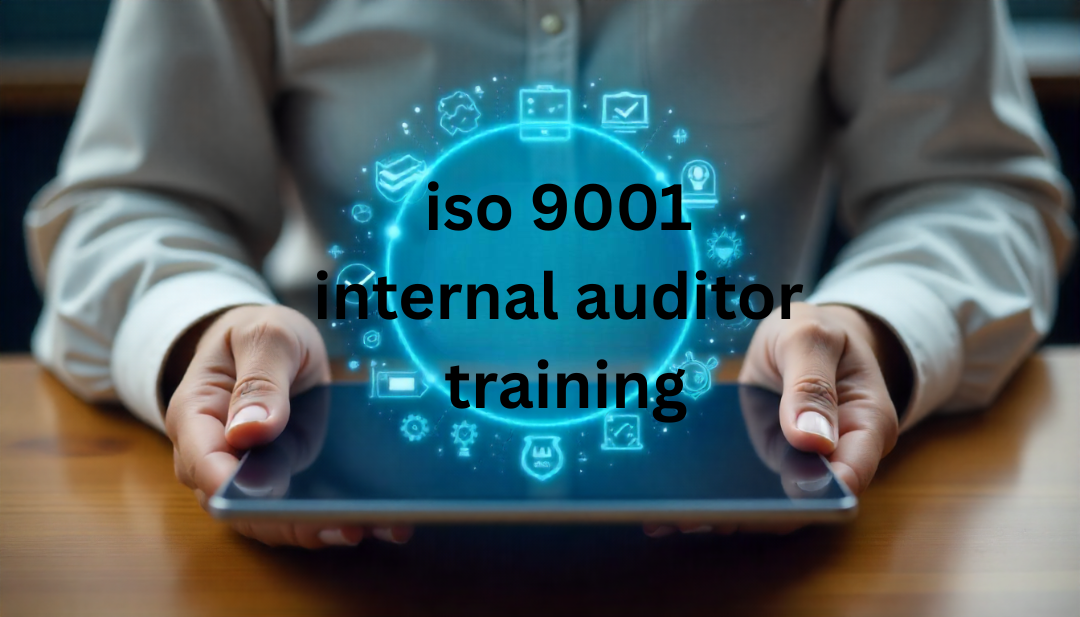Why ISO 9001 Internal Auditor Training Is Your Quality Team’s Secret Weapon

Picture this: your quality assurance team is humming along, checklists in hand, processes ticking like clockwork. Then, an external audit looms, and suddenly, everyone’s scrambling. Sound familiar? If you’re a quality manager, you’ve probably felt that pang of dread when the stakes feel sky-high. That’s where ISO 9001 internal auditor training swoops in like a superhero, saving the day by turning your team into confident, proactive problem-solvers. Let’s unpack why this training isn’t just a checkbox—it’s a game-changer for your organization’s quality management system (QMS).
What’s ISO 9001, Anyway? A Quick Refresher
Before we dig in, let’s set the stage. ISO 9001 is the gold standard for quality management systems, a framework that helps organizations deliver consistent, high-quality products or services. It’s not about perfection; it’s about building processes that keep things reliable and customer-focused. But here’s the catch: maintaining that standard requires regular checks, and that’s where internal auditors shine. They’re the ones poking around your processes, spotting gaps, and ensuring everything aligns with ISO 9001 requirements.
You might be thinking, “Can’t we just wing it?” Honestly, no. Without trained internal auditors, you’re gambling with compliance, efficiency, and customer satisfaction. Training equips your team to navigate the standard’s complexities with confidence—think of it like giving them a map and a flashlight for a trek through dense woods.
Why Internal Auditor Training Matters (More Than You Think)
So, why invest in ISO 9001 internal auditor training? It’s not just about passing audits; it’s about building a culture of quality. Here’s the thing: untrained auditors might miss critical issues, like a chef overlooking a spoiled ingredient. That’s a recipe for disaster. Training sharpens your team’s skills, helping them spot risks, improve processes, and save your organization from costly mistakes.
Let’s break it down:
- Confidence in Compliance: Trained auditors know the ISO 9001 standard inside out, so they can ensure your QMS meets every requirement.
- Proactive Problem-Solving: They catch issues before they snowball, saving time and resources.
- Team Empowerment: Training boosts morale—your team feels trusted and capable, which spills over into their everyday work.
- Customer Trust: A robust QMS, backed by skilled auditors, means happier customers and fewer complaints.
I once spoke with a quality manager who said their team used to dread audits. After training, though? They started looking forward to them. Why? Because they knew they had the tools to nail it.
What Does the Training Actually Cover?
Okay, let’s get into the nuts and bolts. ISO 9001 internal auditor training isn’t about memorizing a rulebook—it’s about learning to think like an auditor. Most courses, like those offered by organizations such as ASQ or BSI, blend theory with hands-on practice. Here’s what you can expect:
- Understanding the Standard: Trainees dive deep into ISO 9001 clauses, from quality objectives to risk-based thinking. It’s like learning the rules of a game before you play.
- Audit Planning and Execution: You’ll learn how to scope an audit, create checklists, and conduct interviews without making everyone squirm.
- Nonconformity Reporting: Spotting issues is one thing; documenting them clearly and constructively is another. Training teaches you how to write reports that drive improvement, not defensiveness.
- Root Cause Analysis: This is where the magic happens. Auditors learn to dig into why problems occur, using tools like the 5 Whys or fishbone diagrams.
- Soft Skills: Ever try auditing someone who’s dodging questions? Training covers communication, conflict resolution, and even a bit of emotional intelligence.
Sounds like a lot, right? It is, but good training breaks it down into digestible chunks. Plus, many programs include role-playing or mock audits, which make the learning stick. Imagine practicing a fire drill before a real fire—that’s the vibe.
Who Should Take This Training?
You might be wondering, “Is this just for quality nerds?” Not at all. While quality managers and QA team members are the obvious candidates, the training benefits a wider crowd:
- Process Owners: They oversee specific operations and need to understand how audits impact their work.
- New Hires: Bringing fresh faces up to speed ensures consistency across the board.
- Leadership: Executives who get the auditing process can better support the QMS.
Here’s a little tangent: I once met a warehouse supervisor who took an ISO 9001 course “just because.” He ended up catching a process flaw that saved his company thousands in rework costs. Moral of the story? Don’t underestimate who can benefit from this training.
How to Choose the Right Training Program
Not all training programs are created equal. Some are as dry as toast; others are engaging and practical. Here’s how to pick one that’s worth your time and budget:
- Trainer Expertise: You want instructors who’ve walked the walk—former auditors or quality managers who can share real-world stories.
- Practical Focus: The best courses include case studies or simulations. Theory’s great, but practice makes perfect.
Pro tip: Check reviews on platforms like Trustpilot or even posts on X to see what others are saying about the course. Real feedback from quality professionals can steer you right.
Overcoming Common Hurdles
Now, I won’t sugarcoat it—there are challenges. Training takes time, and time is money. Some team members might grumble about “another course” or feel intimidated by the technical stuff. Here’s how to tackle those hurdles:
- Time Crunch: Schedule training during quieter periods, like early fall when business might slow down. Or opt for bite-sized online modules.
- Complexity Fears: Choose beginner-friendly courses that ease newbies into the process. Many providers offer foundational training before diving into the deep end.
The Bigger Picture: Quality as a Culture
Here’s a thought: ISO 9001 internal auditor training isn’t just about audits; it’s about building a mindset. When your team embraces quality, it ripples across the organization. Employees start catching small issues before they escalate. Managers prioritize continuous improvement. Even customers notice the difference—think fewer returns, happier reviews.
Take a company like Toyota, famous for its quality culture. Their “kaizen” philosophy—continuous improvement—isn’t just for the assembly line; it’s a mindset auditors reinforce. Training your team plants those same seeds in your organization.
Getting Started: Your Next Steps
Ready to make this happen? Here’s a simple roadmap:
- Assess Your Needs: How many auditors do you need? What’s your current QMS maturity?
- Research Providers: Check out ASQ, BSI, or local training firms. Compare course formats and costs.
- Engage Your Team: Get buy-in by explaining how training boosts their skills and career prospects.
- Schedule Smart: Plan around your team’s workload to minimize disruption.
- Follow Up: After training, hold a debrief to share learnings and plan your next audit.
You know what? Starting small is okay. Even training one or two auditors can spark big changes. And if you’re feeling overwhelmed, just remember: every quality giant started somewhere.
Wrapping Up: Your Path to Quality Greatness
ISO 9001 internal auditor training isn’t just a line item on your to-do list; it’s a catalyst for excellence. It turns your quality team into detectives, problem-solvers, and guardians of your organization’s reputation. Sure, it takes effort, but the payoff—smoother audits, happier customers, and a stronger QMS—is worth every minute.
So, what’s stopping you? Whether you’re a seasoned quality manager or just dipping your toes into ISO 9001, training is your ticket to confidence and control. Grab it, and watch your team soar.



